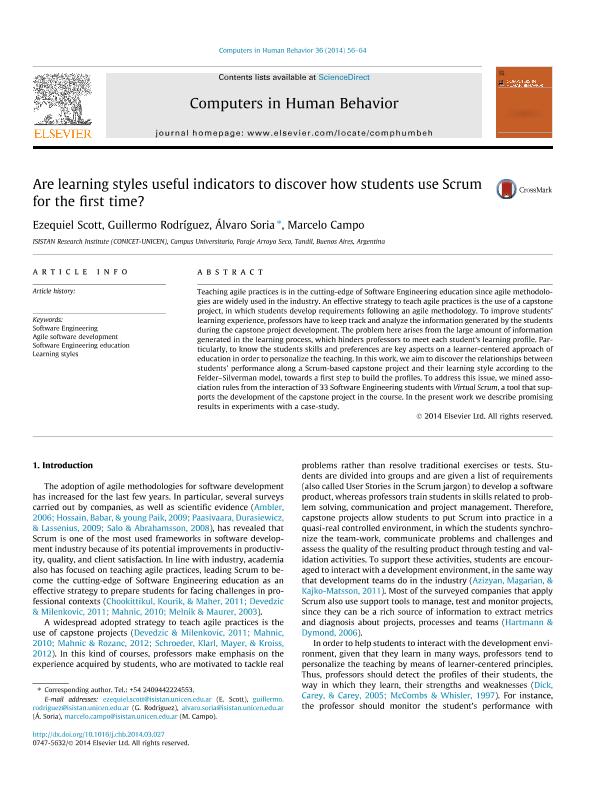Artículo
Are Learning Styles Useful Indicators to Discover How Students Use Scrum for the First Time?
Fecha de publicación:
07/2014
Editorial:
Elsevier
Revista:
Computers in Human Behavior
ISSN:
0747-5632
Idioma:
Inglés
Tipo de recurso:
Artículo publicado
Clasificación temática:
Resumen
Teaching agile practices is in the cutting-edge of Software Engineering education since agile methodologies are widely used in the industry. An effective strategy to teach agile practices is the use of a capstone project, in which students develop requirements following an agile methodology. To improve students? learning experience, professors have to keep track and analyze the information generated by the students during the capstone project development. The problem here arises from the large amount of information generated in the learning process, which hinders professors to meet each student?s learning profile. Particularly, to know the students skills and preferences are key aspects on a learner-centered approach of education in order to personalize the teaching. In this work, we aim to discover the relationships between students? performance along a Scrum-based capstone project and their learning style according to the Felder?Silverman model, towards a first step to build the profiles. To address this issue, we mined association rules from the interaction of 33 Software Engineering students with Virtual Scrum, a tool that supports the development of the capstone project in the course. In the present work we describe promising results in experiments with a case-study.
Archivos asociados
Licencia
Identificadores
Colecciones
Articulos(ISISTAN)
Articulos de INSTITUTO SUPERIOR DE INGENIERIA DEL SOFTWARE
Articulos de INSTITUTO SUPERIOR DE INGENIERIA DEL SOFTWARE
Citación
Scott, Mario Ezequiel; Rodríguez, Guillermo Horacio; Soria, Alvaro; Campo, Marcelo Ricardo; Are Learning Styles Useful Indicators to Discover How Students Use Scrum for the First Time?; Elsevier; Computers in Human Behavior; 36; 7-2014; 56-64
Compartir
Altmétricas




